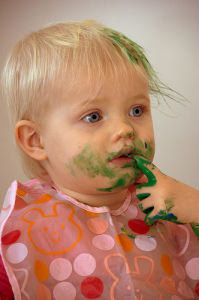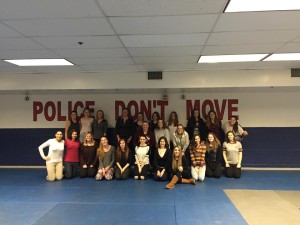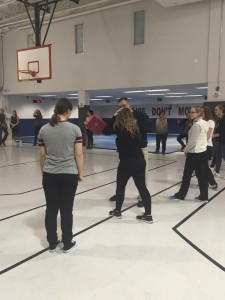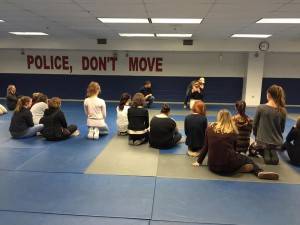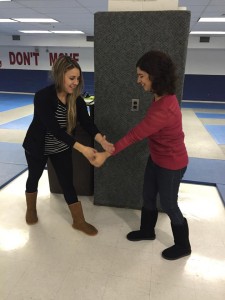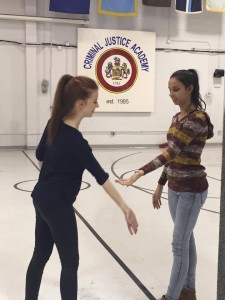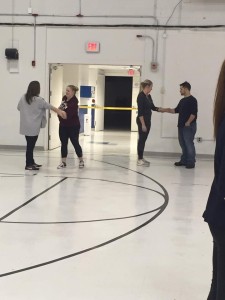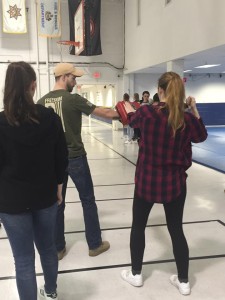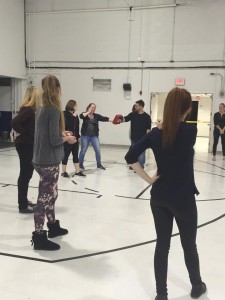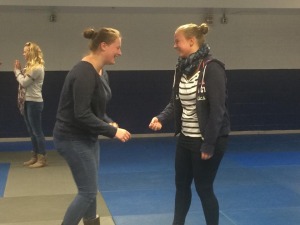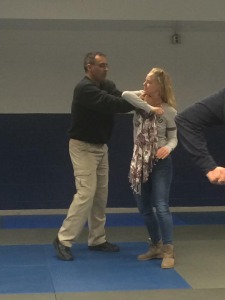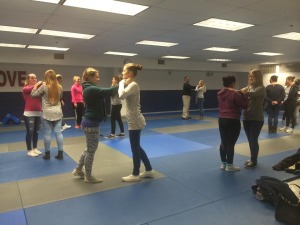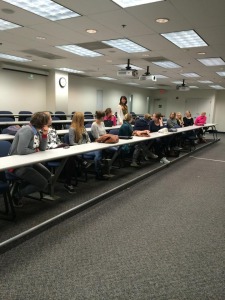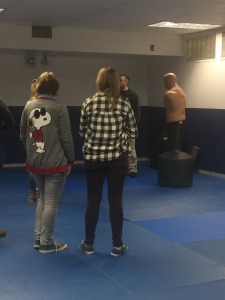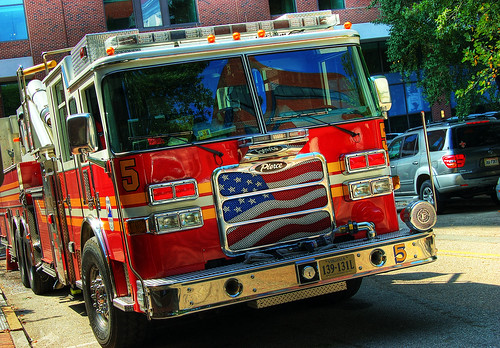At some point this winter your host child will probably develop a fever, i.e. a body temperature that is higher than the normal 98.6 F. It is very important to realize that fever itself is not an illness-only a symptom of one. When your host child has a fever, his/her heart rate and breathing will speed up slightly in addition to feeling slightly warm. She/he may appear flushed and perspiration may be present as well. Do not give medicine to your host child with out the permission of your host family. There are strict guidelines for dosages and they MUST be followed.
Tag Archives: safety

Buying Presents

Check with your host parents before you buy a child a toy that requires close supervision – electrically operated toys, shooting toys and games, chemistry sets, and the like. Remember, too, that younger children may have access to toys intended for older children once the toy has been brought into the home.
Tips for the Holidays for Au Pairs and Host Families
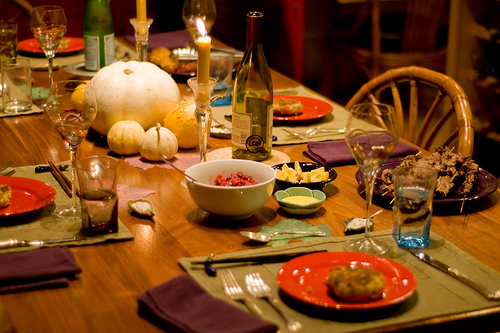
From Christine Connally, Community Counselor in MD:
Childcare focus – Check with your host parents before you buy a child a toy that requires close supervision – electrically operated toys, shooting toys and games, chemistry sets, and the like. Remember, too, that younger children may have access to toys intended for older children once the toy has been brought into the home.
Driving – Traffic tends to be heavier around the Holidays. My best advice is to leave earlier than normal and take your time. Be the “bigger person” and allow that one last car to slip in ahead of you. It may avoid an accident. Remember au pairs can be asked to pay up to $500 of the deductible for an accident.
Healthy eating – is your house filled with treats, and goodies that are tempting you? It is the season, and you are here for a cultural exchange, so try some of the traditional sweets your host family is offering, but it is a good idea to downsize your portions – how much you eat is as important as what you eat.
Hints for success – If there is an alarm system for the house, be sure that the au pair is listed with the alarm company as a legitimate user of the alarm. Also, the au pair must know the appropriate security code in case of a false alarm.
Photo: Benjamin Chun
Happy Halloween!!!
Halloween can be a lot of fun but it is also a time when safety should come first. Here are some tips for tonight.
- Adult supervision is essential. Always accompany the children if they are going door to door to trick or treat
- Try tick-or-treat-friendly homes. Ensure the children only visit houses with lights on. And, you might also suggest the houses they visit have some sort of Halloween decoration on the porch.
- Stay outside. Make sure the children don’t go inside someone’s house. They can trick or treat on the porch.
- Remain visible. Dress the children in bright costumes or have them wear reflective strips or carry a glow stick or flashlight.
- Quality-check treats. Check the candy before they eat it. Throw out any candy that is not in its original wrapper or looks like it has been tampered with.
- Say “no” to strangers. Remind the children to never accept a ride or go anywhere with a stranger.
Most of all…have fun!
Halloween Health and Safety Tips
From cdc.gov
Photo: Steven Depolo
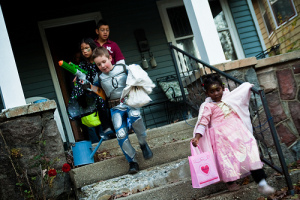
For many people, autumn events like Halloween and Harvest Day are fun times to dress up in costumes, go trick-or-treating, attend parties, and eat yummy treats. These events are also opportunities to provide nutritious snacks, get physical activity, and focus on safety.
Below are tips to help make the festivities fun and safe for trick-or-treaters and party guests.
Going trick-or-treating?
 |
Swords, knives, and similar costume accessories should be short, soft, and flexible. | |||
 |
Avoid trick-or-treating alone. Walk in groups or with a trusted adult. | |||
 |
Fasten reflective tape to costumes and bags to help drivers see you. | |||
 |
Examine all treats for choking hazards and tampering before eating them. Limit the amount of treats you eat. | |||
|
||||
 |
Hold a flashlight while trick-or-treating to help you see and others see you. Always WALK and don’t run from house to house. | |||
 |
Always test make-up in a small area first. Remove it before bedtime to prevent possible skin and eye irritation. | |||
 |
Look both ways before crossing the street. Use established crosswalks wherever possible. | |||
 |
Lower your risk for serious eye injury by not wearing decorative contact lenses. | |||
 |
Only walk on sidewalks whenever possible, or on the far edge of the road facing traffic to stay safe. | |||
 |
Wear well-fitting masks, costumes, and shoes to avoid blocked vision, trips, and falls. | |||
 |
Eat only factory-wrapped treats. Avoid eating homemade treats made by strangers. | |||
 |
Enter homes only if you’re with a trusted adult. | |||
 |
Never walk near lit candles or luminaries. Be sure to wear flame-resistant costumes. |
Childproofing
With shorter days and colder weather, you and the children are probably spending more time inside the house. Please be sure that the house is “childproof” with these simple tips:
- Children are curious; many small children put everything into their mouths. Be sure no small objects are within the child’s reach.
- Plastic bags, long cords and very soft pillows can be dangerous to children.
- If a toy gets broken and has sharp edges, keep it away from children!
- Be sure that laundry soap and other cleaners are out of reach of the children.
- Don’t leave any medicines in reach of children, not even vitamins.
- Keep scissors and knives out of reach.
- Store the toys that belong to older children out of reach of babies and toddlers.
- Many cosmetic items and toiletries, such as mouthwash, perfume, nail polish, and hair spray, are poisonous. Keep them out of children’s reach.
Photo: audi_insperation
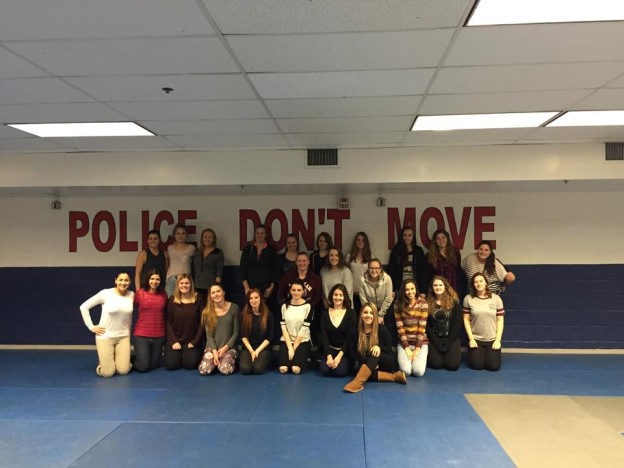
Self Defense Class
Last night our Au Pairs were able to go to the Fairfax County Criminal Justice Training Academy for a self defense class with a great Officer.
The program was based on realistic, common sense, safety precautions/practices, and strategies we can implement to stay safe and avoid confrontations. The officer highlighted day to day activities, and some simple precautions we can take to minimize being identified as a potential target.
We also discussed strategies and possible options (both verbal and physical) to reduce the possibility of injury in the event of a physical confrontation.
Everyone had a great time and learned many new tricks to stay safe!
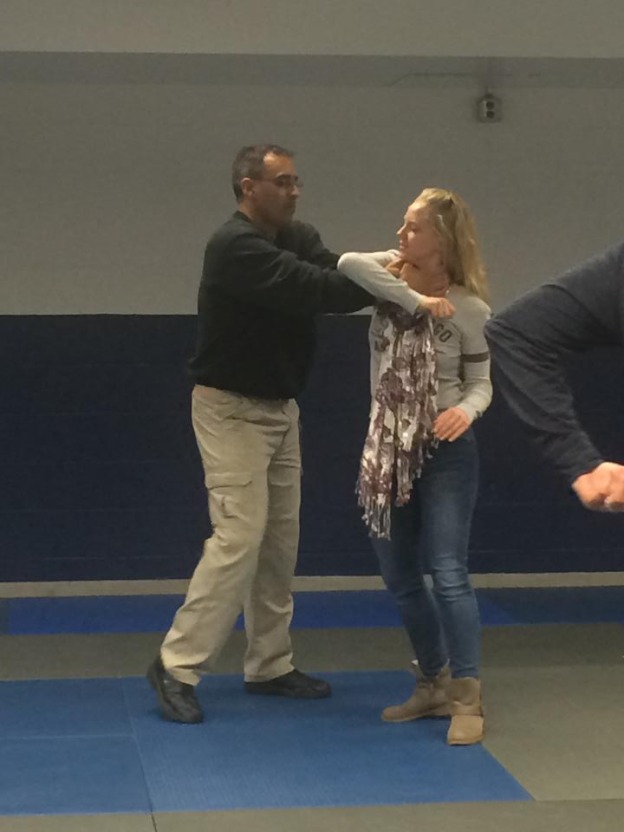
Self Defense Class
Last night our Au Pairs were able to go to the Fairfax County Criminal Justice Training Academy for a self defense class with a great Officer.
The program was based on realistic, common sense, safety precautions/practices, and strategies we can implement to stay safe and avoid confrontations. The officer highlighted day to day activities, and some simple precautions we can take to minimize being identified as a potential target.
We also discussed strategies and possible options (both verbal and physical) to reduce the possibility of injury in the event of a physical confrontation.
Everyone had a great time and learned many new tricks to stay safe!
Self Defense Class
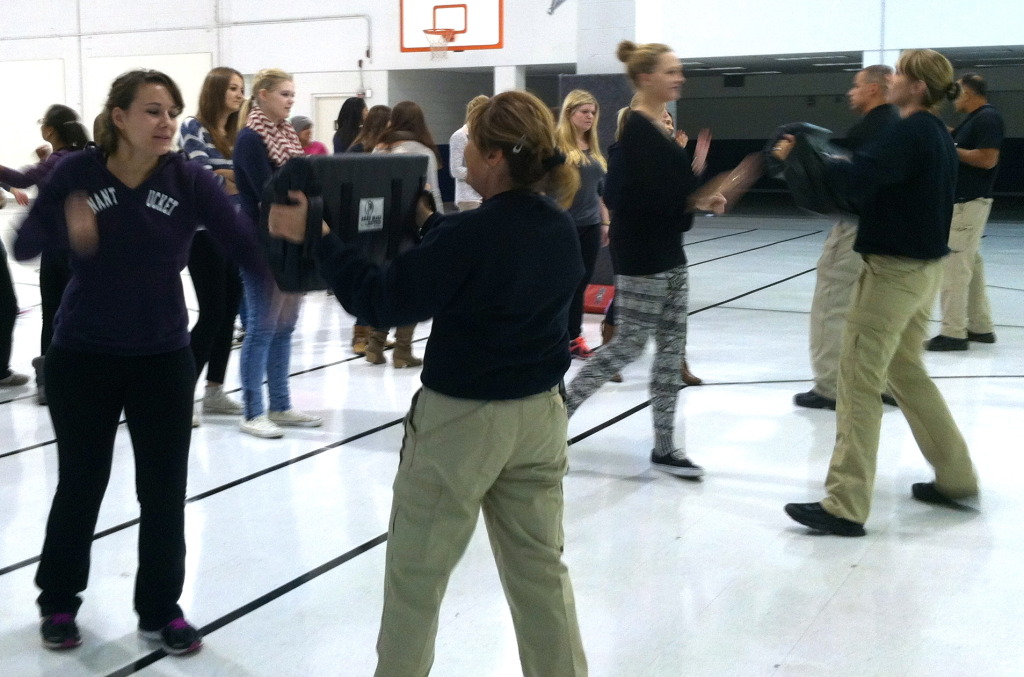
Last night our Au Pairs were able to go to the Fairfax County Criminal Justice Training Academy for a self defense class with 5 amazing Officers.
The program was based on realistic, common sense, safety precautions/practices, and strategies we can implement to stay safe and avoid confrontations. The officers highlighted day to day activities, and some simple precautions we can take to minimize being identified as a potential target.
We also discussed strategies and possible options (both verbal and physical) to reduce the possibility of injury in the event of a physical confrontation.
Everyone had a great time and learned many new tricks to stay safe!
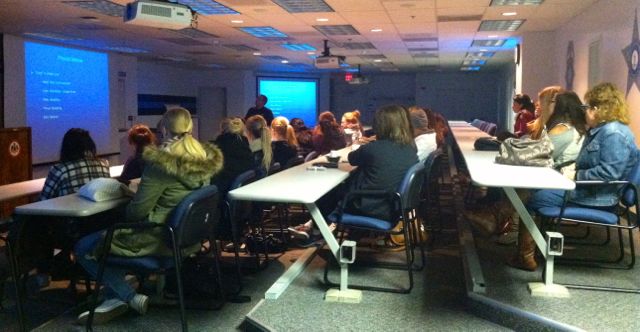
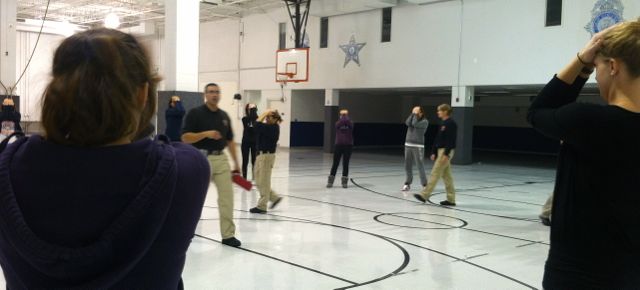
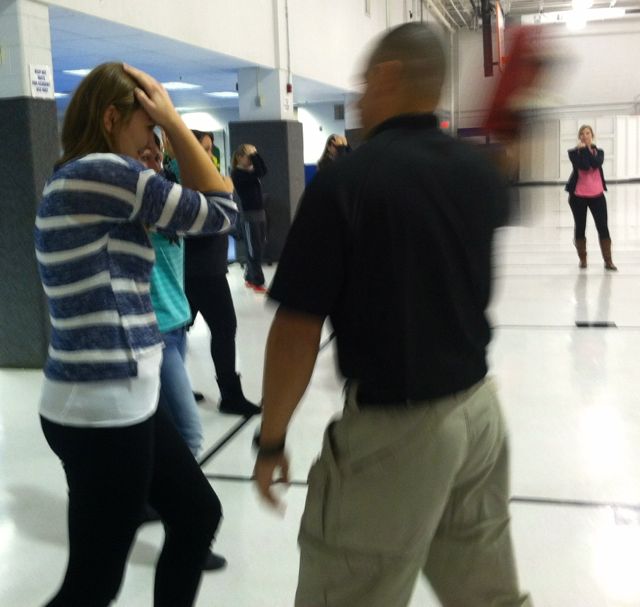
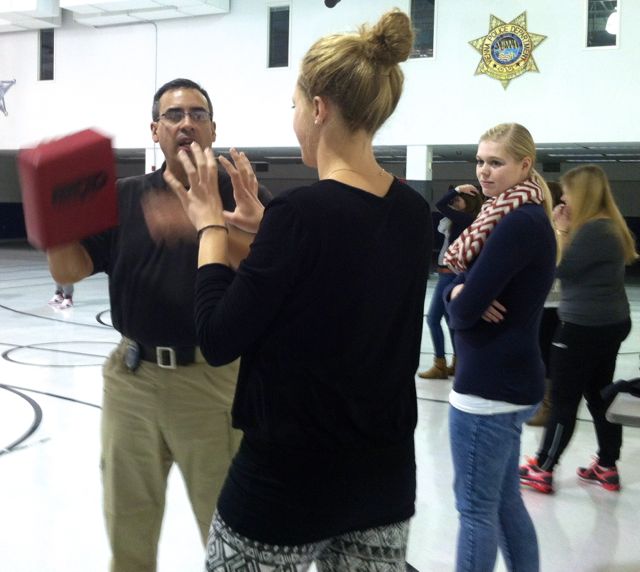

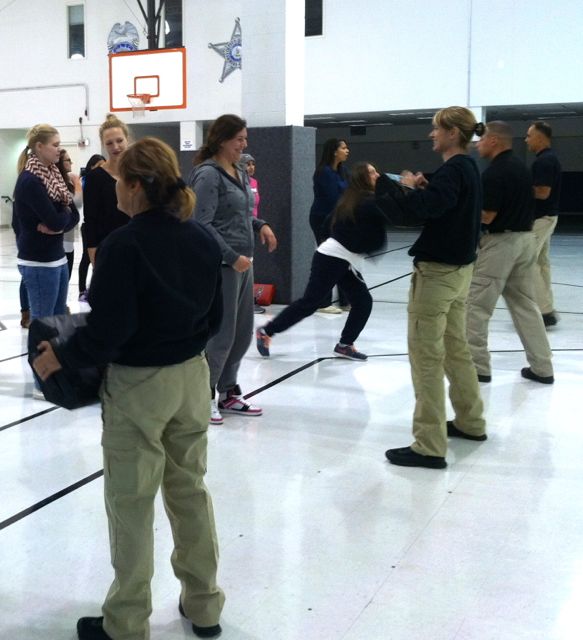


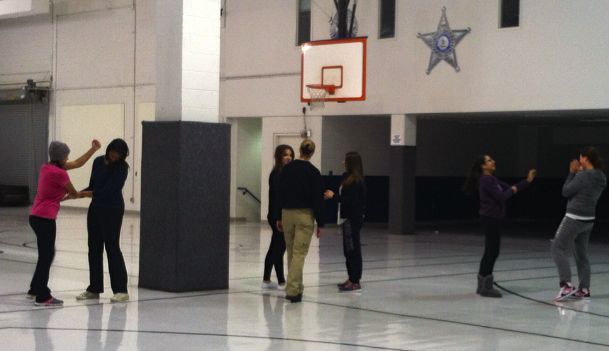
Fire Safety Week
Here are some fire safety tips from PBSKids.org. Go over these fire safety tips with your children.
Be Smart
- Don’t touch matches. Stay away from lighters and candles, too.
- Don’t touch radiators or heaters. Ask a grown-up to turn a heater on or off for you. Don’t stand too close to a fireplace or wood stove, either.
- Don’t play with electrical cords. And don’t stick anything into an electrical socket.
- Don’t play around in the kitchen. If you want to cook something, be sure to check with a grown-up first.
- Don’t put anything over a lamp. Things thrown over a lamp (like blankets or clothing) could catch fire.
And Remember…
Stop, Drop, and Roll. If your clothing catches fire, remember to stop where you are and drop to the ground. Cover your face and mouth with your hands, and roll over and over until the flames are out.

